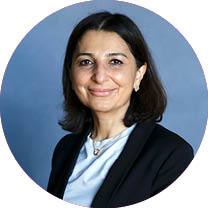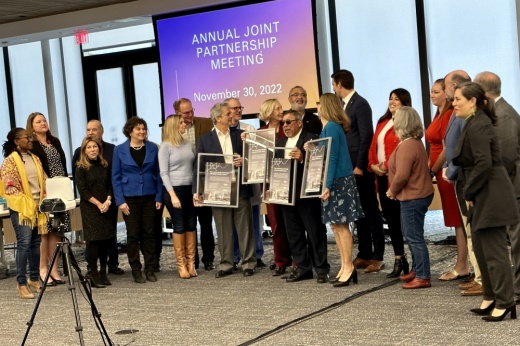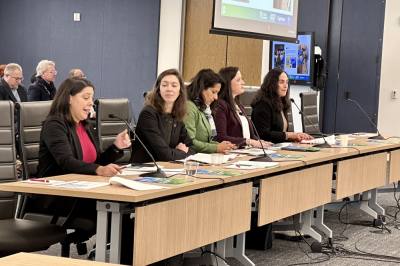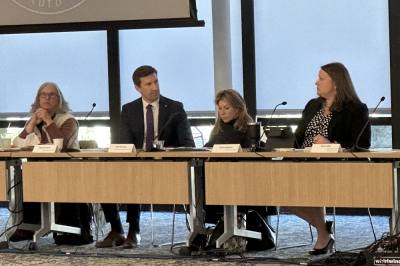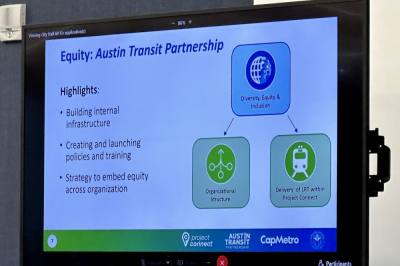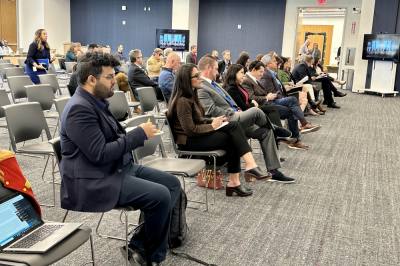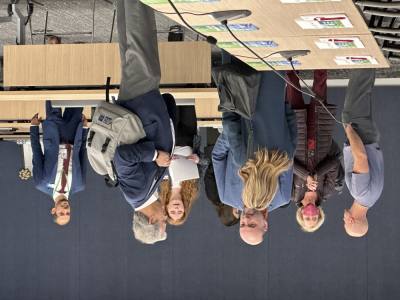CapMetro staff presented the management report Nov. 30 in a joint annual meeting of CapMetro, the Austin City Council and the Austin Transit Partnership Board, an independent entity responsible for the overall implementation of Project Connect. The meeting came just over two years after voters backed the Project Connect transit plan.
“We have three MetroRail capital improvement projects underway, the first of which has reached substantial completion,” said Molly King, the executive vice president of Project Connect integration for CapMetro.
The MetroRail Red Line includes three capital projects that are underway. The first, the Lakeline-Leander Double Tracking Project, broke ground in January 2021 and is expected to open this winter in early 2023. The second, McKalla Station, broke ground in July and is expected to complete in fall 2023. The third, at the Broadmoor Station at Uptown ATX near the Domain, broke ground in January and is expected to be complete in early 2024.
The Lakeline-Leander Double Tracking Project provides another set of tracks on the existing MetroRail Red Line between the White Line and Leander stations. This allows for improved service, including reduced travel time along the red line, King said.
The Red Line also includes four new quiet zones along Kramer, Braker, Rutland and Rundberg crossings. According to the Federal Railway Administration, quiet zones are areas along railway crossings where railway horns are not routinely sounded unless in an emergency. Quiet zone safety enhancements are being constructed as part of McKalla Station work and will be completed in late 2023.
The Red Line enhancements funded through Project Connect will support increased commuter rail service, bolstering ridership and mobility options to support continued population growth. The Red Line will provide connections to the larger light rail transit system as well as MetroRapid and MetroBus routes.
The report showed the designs of CapMetro’s MetroRapid, a bus rapid transit service in Austin between Pleasant Valley and Expo Center lines. Three stations in the Pleasant Valley Line are complete, and five are in the final design. In the Expo Center Line, six stations are complete, and five are in design and permitting. Both lines are being equipped with bus bays for electric bus charging in their park and ride facilities.
CapMetro has procured the construction contracts in accordance with CapMetro’s Disadvantaged Business Enterprise Program, and they include the worker protections, such as living wage and worker's compensation to the extent possible, King said.
Additionally, CapMetro has hired a firm to conduct on-site monitoring, ensuring these protections are in place. This allows CapMetro to receive funding from the Federal Transit Administration.
CapMetro has been awarded a $900,000 grant from the FTA for next year to continue to expand transit-oriented development and anti-displacement efforts for Project Connect, said Sharmila Mukherjee, executive vice president of planning and development at CapMetro.
“Many other cities in the country have done this and after the system was built, and here we have a unique opportunity to be able to create that framework with our partners,” Mukherjee said.
Council members, the ATP and attending CapMetro officials had the opportunity to ask questions from the presenters during the meeting and give feedback.
“I have actively been watching to make certain that the steps are being taken to consider community engagement,” District 1 Council Member Natasha Harper-Madison said. “As a person who has decided to reserve the right to be perpetually critical, I'm impressed.”
Ben Thompson contributed to this report.


